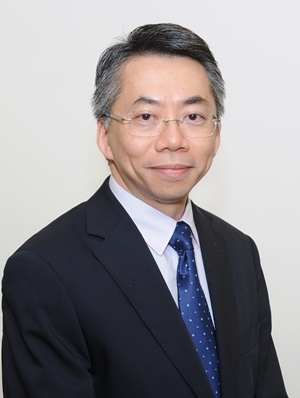About HKCFP > President’s Message

October 2017
Our Chief Executive, Mrs. Carrie Lam has delivered her maiden policy address. There are four good paragraphs concerning Primary Healthcare. Back in early 1990s, she had set out a blueprint for the delivery of primary healthcare and finally after 27 years, she has the chance to implement. She reiterates that a comprehensive and co-ordinated primary healthcare system will enhance overall public health, reduce hospital re-admission and rectify the situation where accident and emergency service is regarded as the first point of contact in seeking medical consultation. These all sound very familiar as the College is always advocating for family doctor led primary healthcare.
The Government will set up a steering committee on primary healthcare development to review the existing planning and draw up a development blueprint. A model for district-based medical-social collaboration is suggested. I hope the College will have a strong representation in this steering committee to voice our view and point out the right path for the primary care in the years to come.
Prior to her policy address, Mrs. Lam has made a new suggestion to the composition of the Medical Council.
|

|
Hong Kong Academy of Medicine will get two extra seats through election and also keep the two existing seats by nomination. The two extra seats are derived from the Department of Health and Hospital Authority with each organization giving up one seat. I was called to a special meeting convened by the Academy at the end of September to discuss this intention. There was a unanimous decision to accept this proposal. I have stressed before the Academy is the best representation for the College at the Medical Council. If the Amendment Bill passes through the Legislative Council this time without much filibustering, I am sure the Academy will organize an open forum to discuss the process of nomination and election of the Academy’s representatives. The past two years I have advocated more seats for the Academy in the Medical Council, another wishful thinking may come true!
I attended a debriefing meeting organized by Centre for Health Protection (CHP) last month for the incident of excess lead in drinking water in 2015. After conducting 5,655 blood lead level (BLL) tests covering the affected group, only 2.9% were found to have mildly elevated BLL (5.0 to 16.7 ug/dL). The observed mild elevation did not and is not expected to result in observable clinical features. Given the mild elevation, no one required chelation therapy or any other specific treatment. The recent news headline reveals the Water Supplies Department will launch an Enhanced Water Quality Monitoring Programme starting in December 2017. This programme intends to extend the assurance of drinking water quality from connection points to consumers’ taps and will test six metals, namely antimony, cadmium, chromium, copper, lead and nickel that may be present in internal plumbing systems. The interesting point is that the risk of significant health effects due to consumption of drinking water tainted with these five metals antimony, cadmium, chromium, copper, nickel is very low! Experience gained from the incident of excess lead in drinking water in 2015 showed that the most important element of clinical management for people having consumed lead contaminated water is cessation of further exposure to contaminated water. Over time, lead will pass out of the body. This programme will certainly reveal few pipes that have raised level of the six metals. The CHP will organize three talks on this topic in October and November 2017 and we need to enhance our knowledge to calm the nerves of the public.
I have the illusion of being employed by the CHP. Since March this year, I have chaired the Advisory Group for Antibiotic Stewardship in Primary Care Settings in Hong Kong under the umbrella of CHP. Antibiotics stewardship programme is to measure antibiotic prescribing; to improve antibiotic prescribing by clinicians and use by patients so that antibiotics are only prescribed and used when needed and in accordance with evidence-based recommendations; and to ensure that the right drug, dose and duration are selected when an antibiotic is used. You will soon receive the first three guidance notes on acute pharyngitis, acute uncomplicated cystitis in women and simple skin and soft tissue infections. Any suggestions of other infections that we may include are most welcome.
Dr. Angus M W CHAN
President Back